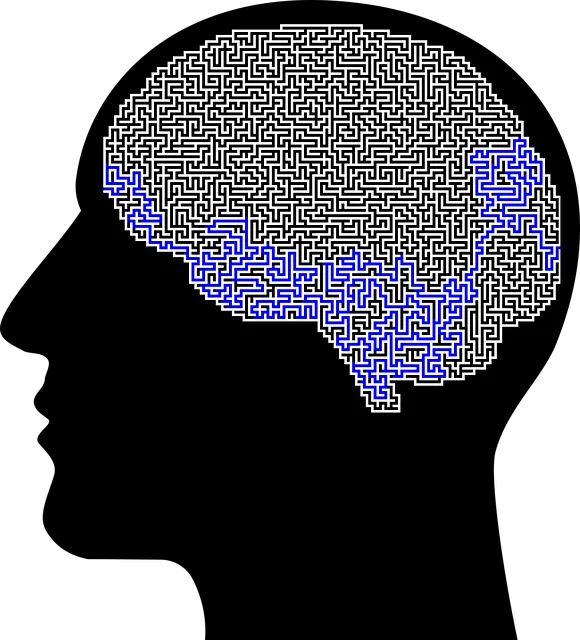Lafayette Kaiser Permanente enhances mental wellness through self-assessment tools that offer personalized behavioral health management, incorporating mindfulness, cultural sensitivity, and stress management. Data analysis identifies community trends, guiding targeted interventions and risk planning. These innovative tools address burnout in healthcare providers, improving patient care quality and connections via the Lafayette Kaiser Permanente behavioral health number.
Mental wellness self-assessment tools play a crucial role in empowering individuals to take charge of their well-being. This article explores the development process of such tools, focusing on real-world applications at Lafayette Kaiser Permanente. We delve into understanding specific mental wellness needs, designing effective assessments tailored to the healthcare system’s unique requirements, and integrating behavioral health data from various sources.
Through continuous improvement, these tools enhance patient care by fostering early intervention and personalized support, ultimately improving outcomes for those seeking mental wellness services.
- Understanding Mental Wellness Self-Assessment Needs
- Designing Effective Assessment Tools for Kaiser Permanente
- Integrating Lafayette's Behavioral Health Data
- Enhancing Patient Care Through Continuous Improvement
Understanding Mental Wellness Self-Assessment Needs

Mental wellness self-assessment tools are crucial for individuals to take an active role in their behavioral health, akin to Lafayette Kaiser Permanente’s commitment to offering comprehensive behavioral health services. Understanding one’s mental wellness is a complex process that involves recognizing emotional states, coping mechanisms, and personal resilience. These assessments cater to diverse needs, from identifying initial signs of distress to tracking progress during recovery journeys.
Effective self-assessment tools must consider cultural competency, as different backgrounds influence how individuals perceive and express their emotions. Healthcare Provider Cultural Competency Training plays a vital role in ensuring these tools are inclusive. By incorporating aspects like Stress Management and Emotional Healing Processes, assessments can provide insightful feedback tailored to each individual’s unique experiences, fostering more personalized mental wellness journeys.
Designing Effective Assessment Tools for Kaiser Permanente

At Lafayette Kaiser Permanente, the development of effective mental wellness self-assessment tools is a priority to support members’ behavioral health needs. These tools play a crucial role in empowering individuals to take an active role in managing their mental well-being. By incorporating evidence-based practices, such as Mindfulness Meditation, assessment tools can be tailored to address diverse populations with varying cultural backgrounds and beliefs. This approach ensures Cultural Sensitivity in Mental Healthcare Practice, fostering inclusive environments that promote trust and open communication.
To enhance the accuracy and relevance of these assessments, self-awareness exercises should be integrated. These exercises encourage individuals to reflect on their thoughts, emotions, and behaviors, providing valuable insights for personalized treatment plans. Ultimately, well-designed assessment tools can help track progress over time, enabling healthcare providers at Lafayette Kaiser Permanente to offer timely interventions and tailored support, thereby improving overall behavioral health outcomes.
Integrating Lafayette's Behavioral Health Data

Integrating Lafayette Kaiser Permanente behavioral health data is a strategic step toward enhancing mental wellness self-assessment tools. By analyzing the behavioral health number associated with Lafayette’s population, professionals can gain valuable insights into the community’s mental health landscape. This data-driven approach allows for the identification of prevalent issues and trends, enabling the development of tailored interventions and support services, such as Trauma Support Services, to address specific needs.
Moreover, integrating this data streamlines Risk Management Planning for Mental Health Professionals, ensuring proactive strategies are in place to mitigate risks and foster a safe environment. Additionally, Self-Care Routine Development for Better Mental Health becomes more effective when aligned with the community’s behavioral health patterns. This integration facilitates the creation of comprehensive self-assessment tools that not only capture individual needs but also reflect the collective mental wellness landscape of Lafayette.
Enhancing Patient Care Through Continuous Improvement

In today’s healthcare landscape, continuous improvement is key to enhancing patient care. Lafayette Kaiser Permanente behavioral health services have recognized this, focusing on developing innovative self-assessment tools for mental wellness. These tools are designed to not only identify but also actively address common issues like burnout, which significantly impacts healthcare providers’ well-being and, consequently, the quality of care they deliver.
By integrating burnout prevention strategies for healthcare providers into these assessments, along with effective communication strategies, patients can expect more holistic support. This proactive approach not only aids in anxiety relief but also fosters a stronger patient-provider connection. The Lafayette Kaiser Permanente behavioral health number serves as a central point of access, ensuring that individuals have the resources they need to navigate their mental wellness journeys effectively.
The development of mental wellness self-assessment tools, as highlighted by Lafayette’s collaboration with Kaiser Permanente, plays a pivotal role in enhancing patient care. By integrating behavioral health data and designing effective assessment methods, organizations like Kaiser Permanente can better understand the mental wellness needs of their population. This continuous improvement approach ensures that services are tailored to specific requirements, ultimately fostering better outcomes for individuals seeking support. With a focus on accessibility and ongoing refinement, these tools have the potential to revolutionize how we navigate and address mental health concerns within our communities, especially when aligned with the unique needs of diverse populations like those served by Lafayette Kaiser Permanente.






